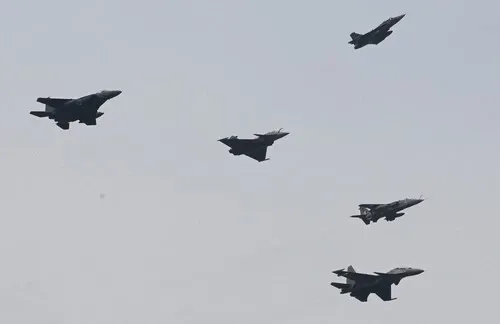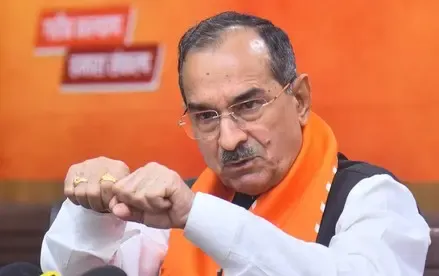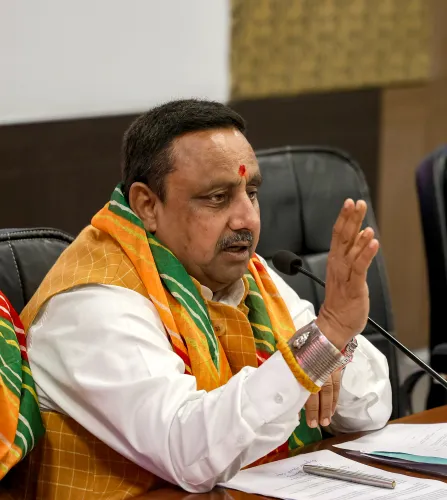Is the Indian Air Force Preparing for a Major Exercise Near the Pakistan Border?

Synopsis
Key Takeaways
- Major air exercise scheduled for May 7 and 8.
- Intensive aerial operations in Rajasthan, ensuring safety.
- Triggered by a terror attack in Pahalgam that resulted in 26 deaths.
- Extensive civil defense drills initiated at 300 locations across India.
- Government granting military autonomy for response strategies.
New Delhi, May 6 (NationPress) On Tuesday, India revealed plans for a significant air exercise near the southern segment of the India-Pakistan border, following the issuance of a NOTAM (Notice to Airmen) ahead of the drills set for May 7 and 8.
The Indian Air Force (IAF) will engage in rigorous aerial operations in Rajasthan as part of its regular operational readiness initiatives. The exercise is scheduled to commence at 3:30 p.m. on May 7 and will last until 9:30 p.m. on May 8, during which airspace in the vicinity will be restricted to guarantee safety and operational efficacy.
This initiative follows a tragic terror attack in Pahalgam last month, which resulted in the deaths of 26 individuals, predominantly civilians. The attack was executed by four terrorists linked to The Resistance Front, a recognized proxy of the Pakistan-based and banned terrorist organization Lashkar-e-Taiba.
Indian intelligence agencies assert they possess conclusive evidence connecting the Pakistani "deep state" to the planning of the attack, further exacerbating already tenuous bilateral relations.
In a synchronized reaction, India has launched extensive civil defense drills at nearly 300 critical sites across the nation. These sites include the national capital Delhi, military bases, oil refineries, hydroelectric facilities, and nuclear power stations. This represents the most comprehensive civil defense preparedness since the 1971 India-Pakistan conflict.
Civil defense districts—regions hosting vital infrastructure or military assets—are preparing for potential escalations. These measures come as speculation increases regarding India’s forthcoming actions. Prime Minister Narendra Modi has convened several high-level meetings with Defence Minister Rajnath Singh, National Security Advisor Ajit Doval, Chief of Defence Staff General Anil Chauhan, and the heads of the Army, Navy, and Air Force.
Sources suggest that during one such meeting last week, the Prime Minister granted the military “full autonomy” to formulate and execute a military response to the Pahalgam attack.









